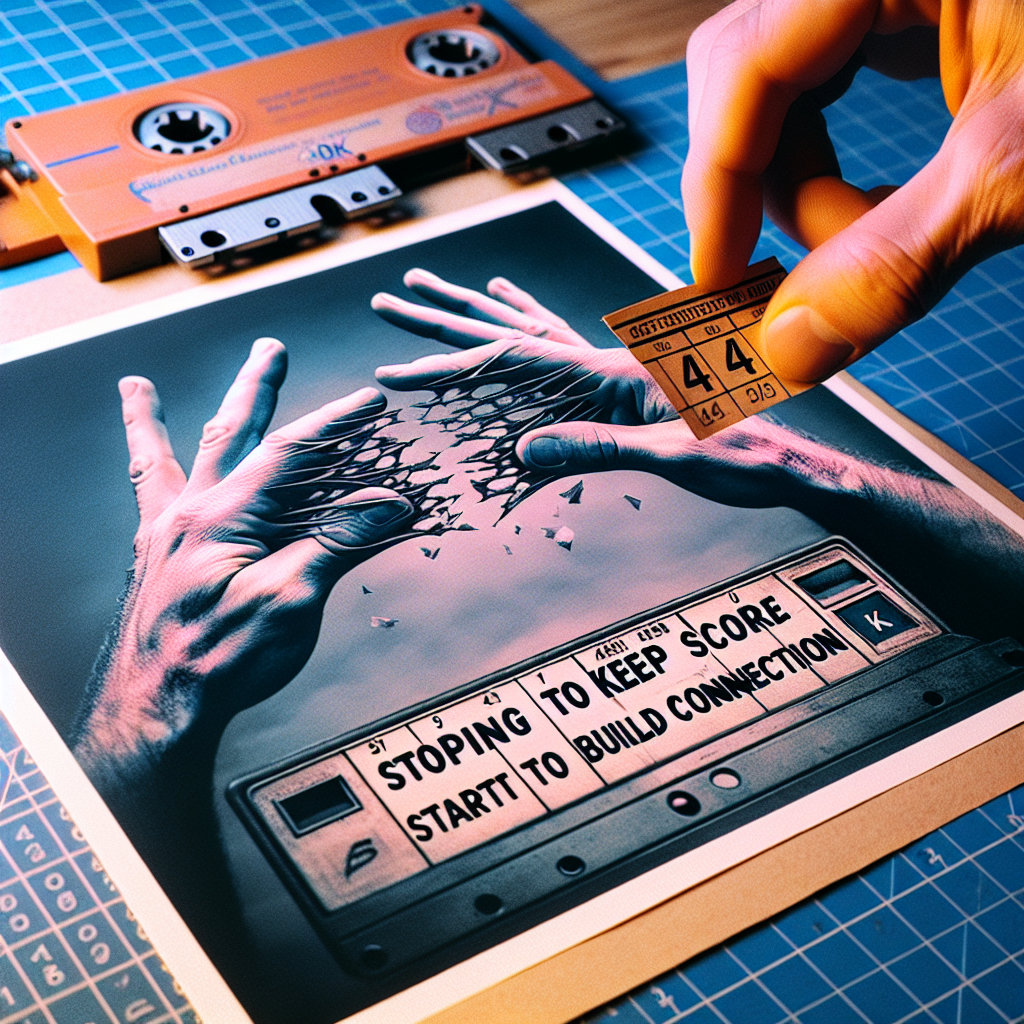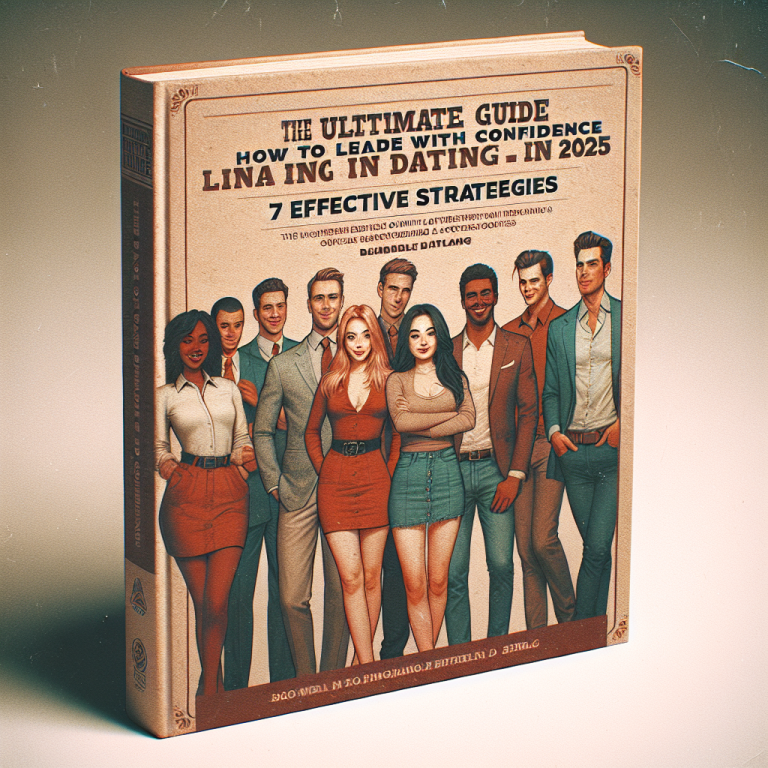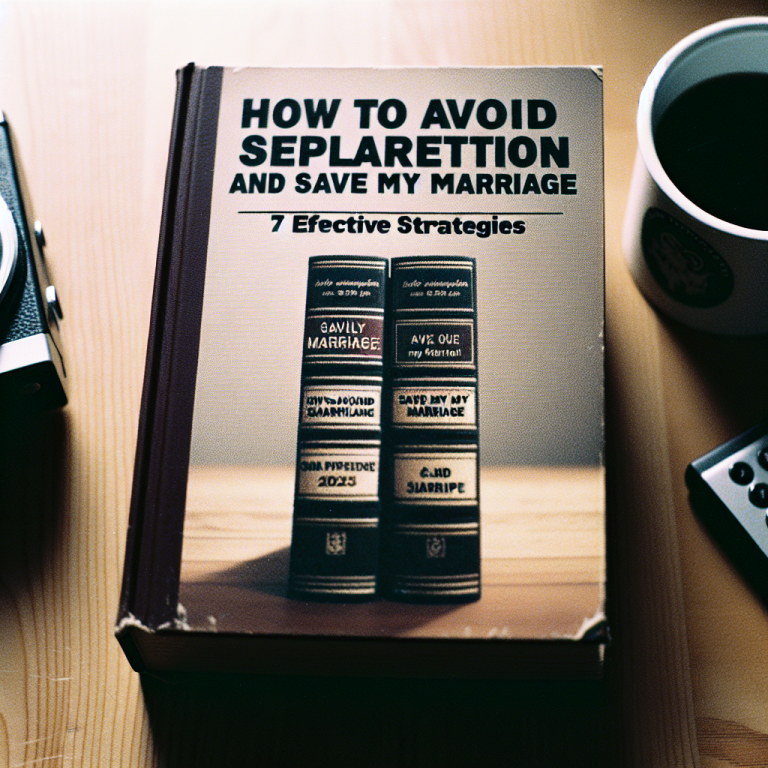How to stop keeping score and start building connection
1. Recognize the Scorecard Mentality
Understanding Our Internal Scorecard
Have you ever found yourself mentally tallying up what you’ve done for someone versus what they’ve done for you? I’ve been there, and honestly, it’s exhausting. This internal scoreboard can create distance in our relationships. The first step in breaking this habit is recognizing that it exists. By actually noticing when I start to compare my actions to someone else’s, I’ve begun to create space for more genuine interaction.
When we keep score, every interaction turns into a transactional exchange rather than a heartfelt connection. For example, think about the last time you felt frustrated because someone didn’t reciprocate your efforts. I can remember countless instances where that frustration was less about the action itself and more about the feeling of being underappreciated.
Awareness is key! Once I acknowledged my tendency to keep score, it was easier to let go of that mentality. It’s not easy, but just being mindful of it can start to change the way you experience your relationships.
Identifying Triggers
We all have triggers—those moments when we feel the urge to pull out the proverbial scorecard. For me, it’s often during stressful times when I need help the most. This is when I catch myself thinking, “Didn’t I help them last week?” It’s a slippery slope!
I’ve learned to pause and reflect in these moments, asking myself why I feel the need to quantify my contributions. Knowing my triggers helps me address the underlying feelings instead of simply reacting out of frustration or entitlement.
By writing down my triggers, I’ve managed to prepare myself for when they inevitably arise. Recognizing these cues allows me to shift my focus back to building connection rather than keeping a mental tally.
Shifting Mindsets
Changing our mindset about relationships is crucial for breaking free from the scorekeeping mentality. We need to embrace the idea that relationships are about give-and-take, not “keeping track.” For me, this means reframing my thoughts when I feel like I’m giving more than I receive. Instead of feeling resentful, I try to focus on the joy that comes from giving without strings attached.
I’ve found it helpful to remind myself that not every act of kindness needs to be reciprocated to hold value. Sometimes, it’s truly fulfilling to give just because we want to. Shifting this mindset has brought an incredible depth to my relationships, allowing connections to develop in a more authentic way.
Over time, the satisfaction of giving without expecting anything in return has also changed the dynamics in my relationships. You might be surprised by how rewarding this can be!
2. Develop Empathy
Putting Yourself in Their Shoes
When I stop and think about what others might be going through, this massive weight of comparison starts to lift. Empathy is a game-changer! It’s not just about understanding someone’s actions, but about truly feeling their situation. Have you ever had a friend who seemed distant, and you later learned they were dealing with some heavy stuff? It’s eye-opening!
Taking the time to understand the emotional landscape of people close to me has changed my perspective tremendously. Instead of feeling slighted when I don’t receive the same level of support I’ve given, I’m reminded that everyone has their own burdens. This shift has helped me navigate many of my relationships more gracefully.
Accessing this empathetic understanding can also foster deeper conversations. Asking questions like, “How have you been feeling lately?” keeps the dialogue open and creates a stronger bond.
Practicing Active Listening
Active listening goes hand-in-hand with empathy, and it’s something I’ve committed to practicing in all my conversations. It’s easy to tune out what someone is saying, especially if you’re preoccupied with your own thoughts. But here’s the scoop—when I genuinely listen, the conversation transforms. People can sense when you’re truly engaged and interested.
To enhance my listening skills, I focus on reflecting what the other person has said. For example, if a friend shares a challenge, I repeat back my understanding of their feelings. This doesn’t just build rapport; it makes the other person feel valued and heard.
Ultimately, active listening promotes emotional safety in relationships. When I create this environment, I find it much easier to drop the scorecard and focus on the connection we are building.
Being Vulnerable
Vulnerability isn’t easy, but when I allow myself to be real and raw with my emotions, I invite others to do the same. This mutual vulnerability creates a deeper bond and can dissolve feelings of competition or resentment. When I share my own struggles, it often paves the way for others to share theirs.
Take that leap of faith! I’ve had some of the best heart-to-heart conversations after opening up about my own hurdles. It strengthens our connection, making it less about how much we’ve each done and more about our overall experience.
Letting my guard down has not only deepened my connections but has made me feel less lonely in my struggles. Believe me, embracing vulnerability can change the narrative.
3. Prioritize Connection over Competition
Mindset Shift
It took me a while to understand that relationships are not a competition—there’s no finish line to cross. Changing my focus from competition to connection has been one of the most liberating experiences for me. I catch myself thinking differently when I prioritize bonding over boasting. Genuine connection eases that need to compare and helps me cultivate more meaningful relationships.
Gracefully celebrating each other’s successes will ultimately uplift everyone involved. You know those friends who light up when you share an achievement? That’s the kind of vibe I want to create in my relationships. It’s way more fulfilling!
Shifting my perspective from “me against them” to “we’re all in this together” has created a supportive atmosphere, which only fosters more genuine connections.
Finding Common Ground
Another way to prioritize connection is to actively seek out common interests and experiences. Whether it’s learning something new together or revisiting shared memories, these activities bring back that sense of teamwork and camaraderie. I’ve found that engaging in team sports, hobbies, or volunteer work together can create amazing bonding moments that overshadow any feelings of competition.
For instance, I once joined a community painting class with a friend, which took us on a fun and messy journey. It reminded us that enjoying the process and our time together was far more important than the final product. We laughed at each other’s paint splatters, and that built a stronger bond between us!
When you find common ground, it shifts the focus from highlighting differences and perceived inequalities to celebrating shared experiences and joy.
Creating Win-Win Situations
In relationships, how can we ensure everyone feels like a winner? It starts with carving out opportunities that allow everyone to thrive. Maybe it’s fostering a collaborative work project or planning social hangouts where everyone’s input is valued. When I elevate others, it gives them a sense of fulfillment that circles back to us all feeling good.
Continuously looking for ways we can support each other’s growth leads to more profound connections. Instead of measuring who did more, we cultivate a community spirit where we can lift each other up. When we all collectively cheer for each other, the only score we have is one of community and support.
That’s what I call a win-win! This mindset shift has helped me foster lasting and rewarding connections with those around me.
4. Embrace Gratitude
Keeping a Gratitude Journal
One habit that’s fundamentally changed how I view my relationships is maintaining a gratitude journal. Writing down what I appreciate about the people in my life has shifted my focus from what’s missing to what’s abundantly present. Each day, I jot down three things I’m grateful for, whether it’s a friend’s support or a small act of kindness received. Interestingly, it’s made me quite aware of how often others contribute positively to my life.
Over time, this practice not only made me more grateful but also more open with others, leading to deeper connections. Expressing this gratitude verbally enhances the bonds we share because it reminds them that their efforts don’t go unnoticed.
Plus, who doesn’t love compliments? When I express gratitude, it lights up both our hearts, creating a ripple effect that fosters even more appreciation and connection between us. It’s a simple yet powerful tool!
Express Appreciation Regularly
Beyond keeping a gratitude journal, I’ve learned to express appreciation verbally and often. Whether it’s a simple “thank you” or a heartfelt note, openly acknowledging someone’s contributions makes them feel valued. Plus, it creates a culture of appreciation.
In my experience, the more I express gratitude, the more I receive it back in return. It’s like the universe responding in kind! Conversations filled with expressions of appreciation can shift the whole energy of a relationship and foster deeper connections.
When I practice gratitude, I feel lighter, and it’s easier to put aside feelings of competition or resentment. It’s become a lovely cycle of positivity and connection!
Reminding Yourself of the Big Picture
Whenever I find myself slipping back into scorekeeping, I remind myself why relationships matter in the first place. They bring joy, laughter, and companionship into our lives—beyond any individual exchange! Keeping the bigger picture in mind helps me celebrate what connects us rather than what divides us.
Life is too short to stay bogged down by petty scorekeeping. Instead, I want to build an environment where everyone feels connected and loved. This overarching view fuels my desire to enhance the bonds I share with others, steering clear of competition.
When I embrace this mindset, I’m often filled with gratitude for the diverse connections I have. They enrich my life in ways I never could have imagined!
5. Create Healthy Boundaries
Understanding Your Needs
Creating healthy boundaries is crucial for establishing genuine relationships. I used to blend the lines between my needs and those of others, which often led to feeling overwhelmed or unappreciated. By taking the time to identify my own needs, I began to communicate them more clearly to those around me.
For instance, if I know I require alone time to recharge, I express this need rather than simply withdrawing and leaving others wondering. Acknowledging and communicating these needs has led to healthier and more balanced relationships.
When boundaries are set, it lets others know that I value myself enough to prioritize my well-being, which in turn encourages them to do the same. This mutual respect fosters deeper connections built on understanding and care.
Respecting Others’ Boundaries
Creating healthy boundaries isn’t just about stating my own; it’s also crucial to respect the boundaries of others. When someone expresses a need, I’ve learned to listen and honor it without judgment. This improves trust in our relationship, allowing us to connect on a deeper level.
Understanding that everyone has unique perspectives and comfort levels has changed how I interact with those around me. It creates a space where everyone feels safe to express their needs, and ultimately strengthens our connections.
Being respectful of boundaries also means knowing when to step back. If a friend needs space, I try to give them that, which shows I care. It’s this respect that fosters stronger bonds, reinforcing that I’m here for them in a supportive way.
Finding Balance
Having healthy boundaries doesn’t mean cutting people off; it’s all about finding balance. For me, this means being flexible while staying true to my needs. I strive to find a good compromise where both parties feel comfortably supported. I often engage in open dialogue to work through differences and collaboratively set boundaries that work for us both.
This approach ensures that my relationships remain nourishing and inviting. The conversations I now have about boundaries are often more about collaboration than conflict, leading to a deeper, more connected understanding of each other.
Ultimately, establishing balance in our relationships promotes an environment where connection can flourish, moving beyond keeping score to nurturing true connections!
FAQs about How to Stop Keeping Score and Start Building Connection
1. What does it mean to keep score in relationships?
Keeping score in relationships refers to the practice of tallying up contributions, favors, or efforts to judge fairness or balance. This mindset often turns relationships transactional instead of genuine.
2. Why is empathy important in building connections?
Empathy allows us to understand and appreciate the feelings and experiences of others. By putting ourselves in their shoes, we can connect on a deeper emotional level, creating trust and understanding in our relationships.
3. How can I practice gratitude in my daily life?
You can practice gratitude by keeping a gratitude journal, expressing appreciation to others, and reminding yourself of the positive aspects of your relationships. Small acts of gratitude can significantly enhance your emotional well-being and connections.
4. What are some ways to create healthy boundaries?
Creating healthy boundaries involves identifying and communicating your needs clearly, respecting others’ boundaries, and engaging in open dialogues about what works for both parties. This ensures mutual respect and balance in relationships.
5. How can I shift my mindset from competition to connection?
You can shift your mindset by focusing on collaboration, celebrating others’ successes, finding common ground, and prioritizing shared experiences. Emphasizing connection over competition will cultivate a more supportive and fulfilling environment.









